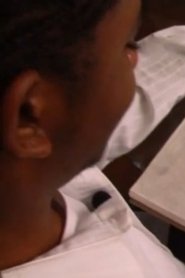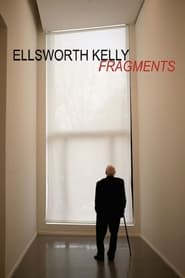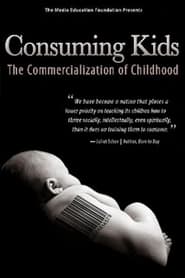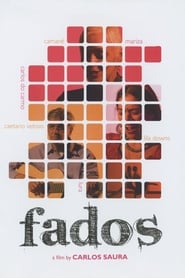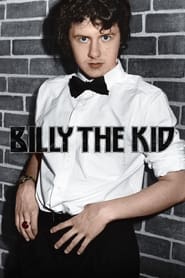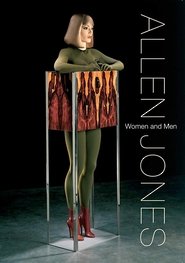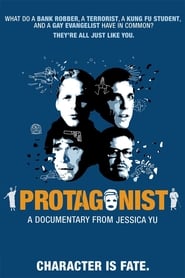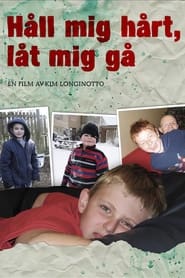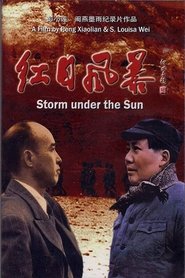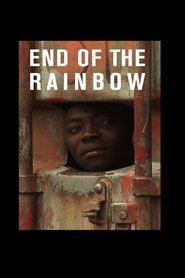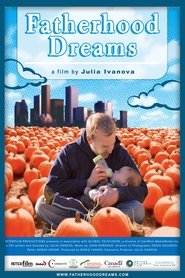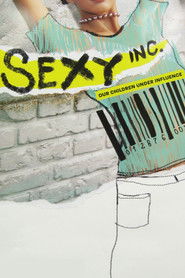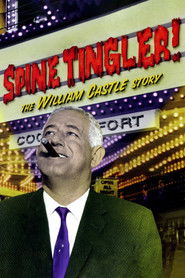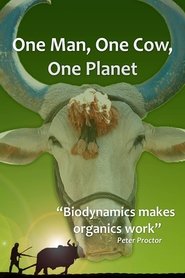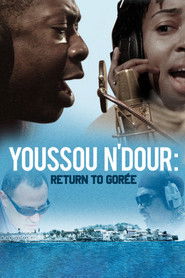New Documentary Movies on Kanopy - Page 239
-
Pressure Cooker
2008
Pressure Cooker
2008
star 7.8A committed, passionate teacher tries to make all the difference in the lives of disadvantaged students. -
Inside the Koran
2008
Inside the Koran
2008
star 3.7In this eye-opening film, director Antony Thomas goes deep into the heart of the Muslim world to explore the history and current state of Islam. He attempts to ascertain what Islam's Holy Book actually says about such subjects as equality, punishment, peace, other faiths and suicide bombing. As with most holy books, the paradoxes contained within lead to an extremely wide range of interpretations, and as such can be "used for ultimate grace or as an alibi for appalling acts and beliefs." Thomas investigates how Islam's teachings in the Koran are very tactfully being employed by nations and powerful leaders alike to further their own political, cultural, and social norms. -
Alone No Love
2007
Alone No Love
2007
ALONE NO LOVE sheds light on child sex abuse in America. Through the work of the Chicago ChildrenaEU(tm)s Advocacy Center (CCAC), one of the nationaEU(tm)s largest and most progressive centers for sexually abused children, we can observe firsthand the challenging work of a multidisciplinary team of doctors, stateaEU(tm)s attorneys, police officers and social workers whose tireless efforts continue to provide refuge for sexually abused kids in Chicago. -
Ellsworth Kelly: Fragments
2007
Cameras record artist Ellsworth Kelly as he creates sculptures for the US Embassy in Beijing. With all his equipment around him, Ellsworth undertakes a big task as his creates he next masterpieces. -
Consuming Kids: The Commercialization of Childhood
2007
star 7.4Consuming Kids throws desperately needed light on the practices of a relentless multi-billion dollar marketing machine that now sells kids and their parents everything from junk food and violent video games to bogus educational products and the family car. Drawing on the insights of health care professionals, children's advocates, and industry insiders, the film focuses on the explosive growth of child marketing in the wake of deregulation, showing how youth marketers have used the latest advances in psychology, anthropology, and neuroscience to transform American children into one of the most powerful and profitable consumer demographics in the world. Consuming Kids pushes back against the wholesale commercialization of childhood, raising urgent questions about the ethics of children's marketing and its impact on the health and well-being of kids. -
Fados
2007
Fados
2007
star 7A series of musical performances showcasing the diverse facets of fado, a musical genre from Lisbon. -
Billy the Kid
2007
Billy the Kid
2007
star 6.3"I'm not black, I'm not white, not foreign, just different in the mind. Different brains, that's all," explains 15-year-old Billy in Jennifer Venditti's provocative coming of age film. Following Billy as he bicycles through the quiet streets of small town Maine, we watch him traverse the frustrating gap between imagination and reality, grappling with isolation and first-time young love. By turns exhilarating and disturbing, we see the world from the intimate view of an expressive and seemingly fearless outsider. -
Allen Jones: Women and Men
2007
star 2An exploration of the work of controversial pop artist Allen Jones, whose erotic sculptures have angered feminists, challenged his contemporaries, and delighted collectors and gallery goers worldwide. WOMEN AND MEN attempts to demystify the artist through discussion with prima ballerina Darcey Bussell, wife Deirdre Morrow, fellow artist Gary Hume, and Jones himself. -
Protagonist
2007
Protagonist
2007
star 6.9Jessica Yu's documentary explores the relationship between human life and Euripidean dramatic structure by weaving together the stories of four men: German terrorist, a bank robber, an "ex-gay" evangelist, and a martial arts student. -
Hold Me Tight, Let Me Go
2007
star 6Harrowing at one moment and heartwarming the next, HOLD ME TIGHT, LET ME GO is set at England's Mulberry Bush School, founded by Barbara Dockar-Drysdale who developed unique methods for working with children suffering through severe emotional trauma. -
Storm Under the Sun
2007
Storm Under the Sun
2007
Storm Under the Sun is a documentary about one of the "political storms" by Mao Zedong that fell upon the intellectuals of China in the 50's. Centered around the Hu Feng Case, the documentary traces the synergy that generated such an event, Mao's personal involvement in every step, and various victims' reaction to and realizations following the humiliation and accusations. -
End of the Rainbow
2007
End of the Rainbow
2007
A large multinational and industrial gold mining company has arrived in a remote area of Guinea, West Africa. This desperately poor region has a long history of economic reliance on gold. This film is a melancholic portrait of the changes brought by the mine, and of the universal human desire for a better life. How do local people respond to the opportunities and economic divisions the mine creates? How do the local jobseekers and expatriate staff, attracted by gold and the possibilities it offers, understand one another? In case of difficulties, the mine calls in the military. Conflict over the mine's presence is escalating. The gold will be dug from the ground, but at what cost? End of the Rainbow reveals a world that is changing forever, and intimately portrays the people who are grappling to respond to those changes. -
Crazy Love
2007
Crazy Love
2007
star 6.4Filmmaker Dan Klores examines the strange love affair of Burt Pugach and Linda Riss. Pugach is a successful attorney in 1950s New York when he meets much-younger Riss. The pair date, but Riss breaks off contact with Pugach upon learning his claims of divorce are false. Discovering that Riss was engaged to another man, Pugach hires some men to throw lye in her face, and he serves 14 years in prison for the crime. -
Farewell Israel: Bush, Iran and the Revolt of Islam
2007
Tracing the historical journey of Islam from its birth in A.D. 624 to its role in contemporary society, this comprehensive program sheds light on the struggles of adherents to the religion and its political implications in the modern world. Topics include the long-standing conflicts between Muslims and Jews, as well as how Bush's reaction to the World Trade Center attacks in 2001 inflamed tensions between Muslims and the West. -
Fatherhood Dreams
2007
Fatherhood Dreams
2007
star 2.7This documentary gives the viewer full access to three families headed by gay fathers. -
Sexy Inc. Our Children Under Influence
2007
An analysis of the hypersexualization of the media environment and its effects on young people. Psychologists, teachers and school nurses criticize the unhealthy culture surrounding children, where marketing and advertising target younger and younger audiences and bombard them with sexual and sexist images. -
Spine Tingler! The William Castle Story
2007
star 7.8Chronicles the last great American showman, filmmaker William Castle, a master of ballyhoo who became a brand name in movie horror with his outrageous audience participation gimmicks. -
One Man, One Cow, One Planet
2007
star 6One man, One cow, One planet exposes globalization and the mantra of infinite growth in a finite world for what it really is: an environmental and human disaster. But across India marginal farmers are fighting back. By reviving biodynamics an arcane form of agriculture, they are saving their poisoned lands and exposing the bio-colonialism of multinational corporations. One man, One cow, One planet tells their story through the teachings of an elderly New Zealander many are calling the new Gandhi. -
Qallunaat!
2007
Qallunaat!
2007
star 5.7Qallunaat! Why White People Are Funny is an irreverent look at Western Civilization through Inuit eyes. Inspired by the satirical essays of Zebedee Nungak, the film turns the tables on generations of anthropologists, teachers, adventurers and administrators who went North to pursue their Arctic Dreams. Now it’s their turn to be poked, prodded, examined and explained. A new generation of Inuit is ready to take on the Qallunaat at their own game. Grounded in their own traditions but educated in the South, they have a unique perspective on the culture that has come to dominate the planet. And they are not afraid to speak their minds. -
Return to Gorée
2007
Return to Gorée
2007
star 9Because jazz is the miraculous product of the horror of slavery, Youssou N'Dour returned to the slave route and the music they created, in search of new inspiration. Accompanied by the blind Swiss pianist Moncef Genoud and the Director of the Gorée House of Slaves Museum, Joseph N'Diaye, the Senegalese singer wrote new songs during this initiatory voyage which took him to the USA then to Europe. At Gorée, an island just off the Senegalese coast and symbol of the slave trade, his memorable concert marked the end of this quest and the start of a new challenge: making today's generation aware of the tragedy of slavery, the importance of not forgetting and the need for reconciliation.
 Netflix
Netflix
 Amazon Prime Video
Amazon Prime Video
 Apple iTunes
Apple iTunes
 Apple TV Plus
Apple TV Plus
 Disney Plus
Disney Plus
 Google Play Movies
Google Play Movies
 Paramount Plus
Paramount Plus
 Hulu
Hulu
 HBO Max
HBO Max
 YouTube
YouTube
 fuboTV
fuboTV
 Peacock
Peacock
 Peacock Premium
Peacock Premium
 Amazon Video
Amazon Video
 The Roku Channel
The Roku Channel
 AMC+
AMC+
 Kocowa
Kocowa
 Hoopla
Hoopla
 The CW
The CW
 Vudu
Vudu
 Starz
Starz
 Showtime
Showtime
 PBS
PBS
 Pantaflix
Pantaflix
 FXNow
FXNow
 Tubi TV
Tubi TV
 Kanopy
Kanopy
 Comedy Central
Comedy Central
 Crunchyroll
Crunchyroll
 Microsoft Store
Microsoft Store
 Redbox
Redbox
 Sun Nxt
Sun Nxt
 ABC
ABC
 DIRECTV
DIRECTV
 Crackle
Crackle
 Fandor
Fandor
 Plex
Plex


